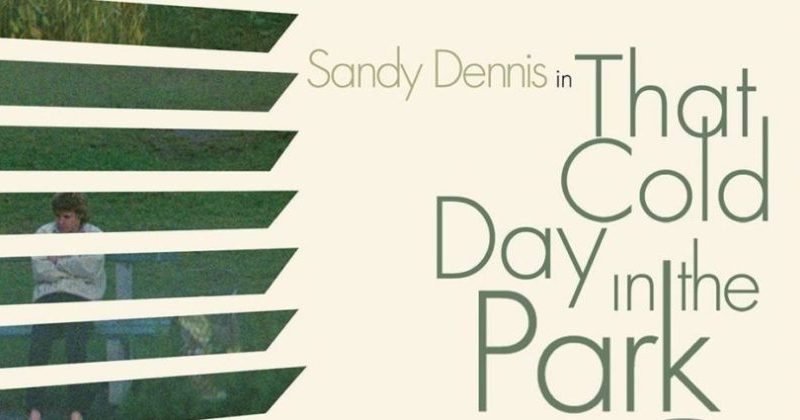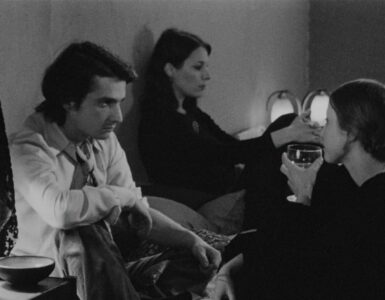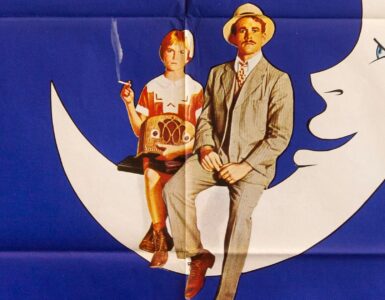
Robert Altman builds his films like dystopian prisons, convincing his residents they have the run of the place while working to ensure they can’t escape. When he actually buckles down for a psychological thriller (3 Women) or locked-room drama (Come Back to the Five and Dime, Secret Honor), any departure from the comedic tone we usually expect from him is balanced by a psychological continuity. His films consistently show that you can never really run away from your problems, and you’re inevitably due to return to them.
That Cold Day in the Park opens in a city so generic, I took the English-accented cast at face value and assumed we were somewhere in the U.K. Here, in a well-appointed apartment, lives Frances (Sandy Dennis), so entombed in the memory of her deceased parents that all her friends (and would-be suitors) are twice her age. She entertains them and busies herself with their activities – lawn bowling, bridge games, conversations about ailments, and so on. She is perhaps no longer young, but she is far from old, and this living among the elderly is taking a toll on her psyche. When she spots a young man (Michael Burns) sitting alone in the park in the midst of a downpour, her charitable spirit and increasing loneliness inspires her to let him in to dry off and have a good meal. If his clothes should no dry and he need to spend the night, well, so be it. If he should keep coming back, all the better. If his life is not so downtrodden as Frances imagines, but more complex than she could guess, well…that’s not precisely her business. She just wants to keep him there.
We never find out his name, because for most of the picture, he refuses to speak. She never learns of his larged, troubled family, nor of the near-incestuous relationship he has with his boorish sister. He wanders out in the middle of the night to the shabby apartment he shares with her, only to return to the plushly-appointed private room with which Frances has furnished him. Through his escapades, we learn we are not in a stuffy British society – Frances and her friends exist apart from the frontier around them, cut off from engaging in it. When, late in the film, she visits a doctor to discuss birth control, the other women in the waiting room freely discuss what to her is extremely nerve-wrecking. Frances has no way of being entirely at ease. Amidst her friends, she is with people who have lived; in the doctor’s office, she is with the living. She herself has not, and does not, live. She exists. She marks time and behaves respectably. No wonder the easygoing conversations of others feel so threatening. This is how Altman twists the improvisation he encourages into something entirely his own.
Her unending prattle – about her life and her minor frustrations and clothes and cooking – means to fill the air between her and The Boy, but is unable to establish a relationship. He is her prisoner by virtue of class. She can offer him room, food, and clothing, in exchange merely for his sitting there and pretending to listen. This alone lights up her life. Dennis carries the role with a sort of learned understanding of people, gained less from actually interacting with them than from notions of how one is to behave. She delivers her lines to The Boy as though knowing it isn’t quite the right thing to say, but lacking any other words with which to express herself. She knows how to hold up her end of a conversation, but not how to truly bond with someone, and by the time she starts to figure out, it’s too late. One especially mistimed attempt at intimacy ends in the film’s most overt scene of horror, as Frances is forced to confront how terribly alone she is. From there the film has given itself license to descend into just about any degree of the genre, and descend it does, all the way to an outstanding conclusion.
Altman’s camera techniques, in collaboration with soon-to-be-famed cinematographer László Kovács (Easy Rider, Five Easy Pieces, Shampoo), will be familiar to those who have seen his psychodramas. Heavy on the zoom-in-and-blur technique, they also find just the right angles to keep the audience engaged in the simmering drama without overtly tipping their hand as to the genre in which the film will eventually require. By the time this genre does emerge, then, their more relaxed rhythms turn grotesque action into everyday behavior, heightening the danger and the discomfort. It’s a lovely piece of work, represented well on Masters of Cinema’s recently-released Blu-ray. Grain structure is managed quite well, as is the color balance, not too saturated given the late-sixties stock Kovács worked with, but plenty vibrant and warm. I didn’t notice any excessive damage or compression artifacts.
Supplements are limited to a worthwhile half-hour interview with critic David Thompson, and a booklet that didn’t arrive with the check disc we received.





![Bergman Island (The Criterion Collection) [Blu-ray]](https://criterioncast.com/wp-content/uploads/2022/11/bergman-island-the-criterion-collection-blu-ray-400x496.jpg)
![This Is Not a Burial, It’s a Resurrection (The Criterion Collection) [Blu-ray]](https://criterioncast.com/wp-content/uploads/2022/11/this-is-not-a-burial-its-a-resurrection-the-criterion-collection-blu-ray-400x496.jpg)
![Lars von Trier's Europe Trilogy (The Criterion Collection) [The Element of Crime/Epidemic/Europa] [Blu-ray]](https://criterioncast.com/wp-content/uploads/2022/11/lars-von-triers-europe-trilogy-the-criterion-collection-the-element-of-400x496.jpg)
![Imitation of Life (The Criterion Collection) [Blu-ray]](https://criterioncast.com/wp-content/uploads/2022/11/imitation-of-life-the-criterion-collection-blu-ray-400x496.jpg)
![The Adventures of Baron Munchausen (The Criterion Collection) [4K UHD]](https://criterioncast.com/wp-content/uploads/2022/11/the-adventures-of-baron-munchausen-the-criterion-collection-4k-uhd-400x496.jpg)
![Cooley High [Criterion Collection] [Blu-ray] [1975]](https://criterioncast.com/wp-content/uploads/2022/11/cooley-high-criterion-collection-blu-ray-1975-400x496.jpg)